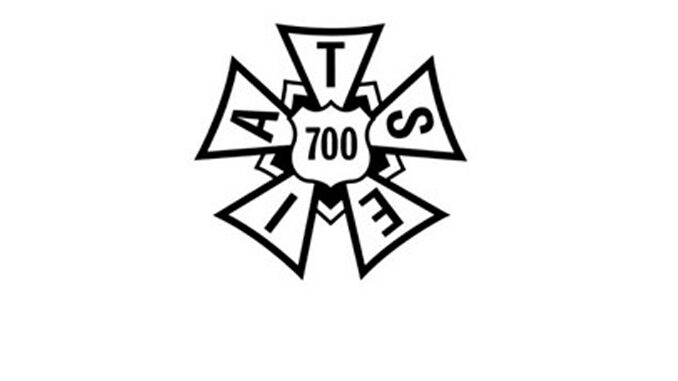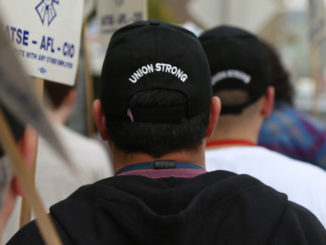
by Cathy Repola
The recent public reports about sexual harassment demonstrate what many of us have long known about the entertainment industry — that discrimination and sexual harassment exists and, in many instances, has been tolerated and/or ignored. Our union has long been an advocate of respectful workplace behavior, and its leadership strongly believes that members are absolutely entitled to work in a safe environment free from hostility and discrimination. Over the years, we have assisted members who have come forward to report inappropriate and sometimes illegal behavior.
You may have seen a recent statement issued by IATSE International President Matt Loeb on this topic. It included a resolution adopted at the IATSE convention in July. I was among the Local 700 delegation in attendance during this convention, and it was a deeply proud moment for all of us to stand united and unanimously endorse this resolution. In case you missed it, here is the link:
www.iatse.net/news/iatse-statement-sexual-harassment-entertainment-industry
At least one redeeming component of the current public conversation is that women and men are finally feeling safe, encouraged and confident enough to come forward and tell their own stories. And because of that, I want to remind you of some resources available to you if you believe that you are the victim of, or have observed others subjected to, workplace harassment and/or discrimination.
For many years, Local 700 has had an online reporting mechanism for members to report contract violations and other workplace concerns:
www.editorsguild.com/Violation-Report
Every report that comes through is vetted and forwarded to the appropriate staff personnel for follow up. We encourage members to contact the Guild via the online report or by phone if you are currently encountering behavior that makes the workplace unsafe or interferes with your ability to do your job.
Our union has long been an advocate of respectful workplace behavior, and its leadership strongly believes that members are absolutely entitled to work in a safe environment free from hostility and discrimination.
As with all matters brought to our attention, we will evaluate and discuss with you the best course of action based on the circumstances of the particular situation. One recourse may be filing a grievance against the employer alleging a violation of the non-discrimination clause in our union agreement. This type of grievance permits resolution through a non-binding mediation process, the pros and cons of which we can discuss with you prior to filing the grievance.
Importantly, in the 2015 Basic Agreement negotiations, we added a required safety course through Contract Services Administration Trust Fund (CSATF), entitled Harassment Prevention, which is provided online and just recently implemented. This course is in compliance with the legally required training that employers must provide for their workforces. While you likely have heard most of the content before, I am sure you will find some helpful guidance and information. You will, or already have been, notified when it is time for you to take the course.
In addition to the internal union reporting mechanism, you can raise workplace concerns directly with employers through their own reporting processes. Employers’ policies typically provide numerous avenues for bringing those types of concerns to the attention of the appropriate staff members for resolution. In addition, CSATF maintains a current list of its participating employers and respective safety reporting contacts:
www.csatf.org/studio_safety_hotlines.pdf
In addition to protections under the collective bargaining agreement, the federal government, as well as many states and municipalities, have laws prohibiting workplace discrimination and harassment based on defined characteristics including — but not limited to — age, sex, race and national origin. Alleged violations of these laws may be pursued by individuals directly through government agencies and/or the courts. You may wish to consult with a private attorney for assistance in filing claims under these laws. Below is a link to government resources available to employees for the resolution of claims of unlawful workplace harassment and discrimination.
www.editorsguild.com/GovernmentResources
Even in light of this array of processes available to resolve unlawful harassment and discrimination issues, I do recognize that many of you may not be interested in filing a “formal” claim (or may be time-barred from doing so), but may still be looking for a forum in which you can ask questions and/or provide support to others who may be experiencing unwanted behavior. That is why we are working on setting up interactive workshops in both Los Angeles and New York that will focus on preventing sexual harassment and discrimination. The goal is to have programs that allow for free-flowing dialogue with attendees and the moderator(s), who will be experts in this field. Please stay tuned for announcements of these workshops.
If there are other ways you think we can assist our members beyond this, please let us know. It is our responsibility as a labor union to provide resources to protect our members in the workplace, and it is our responsibility as human beings to look after one another. I welcome the opportunity to do both.





